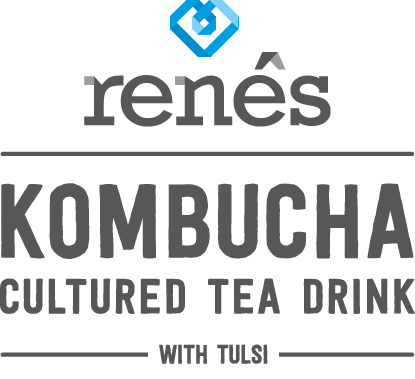Tulsi - Our Not So Secret Ingredient
Tulsi, also called Holy Basil, is one of the most sacred plants in India and is considered “The Queen of the Herbs” for its restorative and spiritual properties.
What Is Tulsi Tea?
The tulsi plant (Ocimum sanctum or Ocimum tenuiflorum) is a member of the mint family closely related to culinary basil (Ocimum basilicum), but it is differentiated by its medicinal properties and some physical characteristics. It's been harvested for use in Ayurvedic treatments for 5,000 years and has a strong aroma and a flavor that can range from peppery to astringent. It's often combined with black, green, or white tea leaves or in an herbal blend with other health-promoting ingredients such as turmeric and ginger.
We are often asked, what makes Tulsi is an aromatic shrub in the basil family Lamiaceae (tribe ocimeae) that is thought to have originated in north-central India and now grows native throughout the eastern world tropics.[2] Within Ayurveda, tulsi is known as “The Incomparable One,” “Mother Medicine of Nature” and “The Queen of Herbs,” and is revered as an “elixir of life” that is without equal for both its medicinal and spiritual properties.[3] Within India, tulsi has been adopted into spiritual rituals and lifestyle practices that provide a vast array of health benefits that are just beginning to be confirmed by modern science. This emerging science on tulsi, which reinforces ancient Ayurvedic wisdom, suggests that tulsi is a tonic for the body, mind and spirit that offers solutions to many modern-day health problems.
Many of the physiological benefits of tulsi can be attributed to its ability to assist with the body’s internal housekeeping and protection of the body from toxin-induced damage.
These functions are often attributed to tulsi’s high content of phenolic compounds and antioxidant properties, with Krishna tulsi (black/purple variety) having a higher phenolic content and antioxidant capacity than white Vana (wild) tulsi. (Wangcharoen W, Morasuk W. Antioxidant capacity and phenolic content of holy basil. Songklanakarin J Sci Technol 2007;29:1407-15.)
Laboratory studies have shown that tulsi protects against toxic chemical-induced injury by increasing the body’s levels of anti-oxidant molecules such as glutathione and enhancing the activity of antioxidant enzymes such as superoxide dismutase and catalase, which protect cellular organelles and membranes by mopping up damaging free radicals caused by lack of oxygen[9] and other toxic agents.
(Shivananjappa M, Joshi M. Aqueous extract of tulsi (Ocimum sanctum) enhances endogenous antioxidant defenses of the human hepatoma cell line (HepG2). J Herbs Spices Med Plants 2012;18:331-48.
Manikandan P, Murugan RS, Abbas H, Abraham SK, Nagini S. Ocimum sanctum Linn. (Holy Basil) ethanolic leaf extract protects against 7,12-dimethylbenz (a) anthracene-induced genotoxicity, oxidative stress, and imbalance in xenobiotic-metabolizing enzymes. J Med Food 2007;10:495-502.)

